The emergence of a pan-African voice in the fight against global warming, a global issue, could allow the African Union to regain ground on the international scene.
A few days ago, the initiative of some African countries aimed at trying to "find a peaceful solution to the devastating conflict" between Russia and Ukraine has caused much ink to flow. One element, however, was not specifically emphasized: this initiative was not taken within the framework of the African Union (AU). This is an additional illustration of the fact that this organization, which replaced the Organization of African Unity (OAU) in 2002 and brings together the 55 States of the continent, is struggling to establish itself on the scene international.
The institution, based on the model of the European Union (EU), has its headquarters in Addis Ababa, the capital of Ethiopia. Intended in particular for “to promote peace, security and stability on the continent”, as well as to develop "common policies on trade, defense and external relations", the AU has for years met with funding issues , promising question its independence.
In addition, the AU faces another difficulty relating to its leadership : its successive presidents, monopolized by their internal problems, often overlook pan-Africanist initiatives.
Therefore, to occupy a place more in keeping with its supposed status, that of an organization representing all the countries of an entire immense continent, should it not place at the heart of its policy the greatest current challenge, namely the fight against global warming? Tackling this global issue, which particularly affects the African continent, could enable it to position itself in the center of the international chessboard.
The AU, a secondary actor in international relations
Global players have always had a great interest in Africa, from the slave trade to the present day, including colonization. We have been witnessing since the end of the cold war a "new scramble for Africa", by which the powers of the world express a growing interest in this continent. Thus, the number of Turkish diplomatic representations has more than tripled in barely 20 years and China is today the first investor in Africa. Despite all this, the role of Africa on the international scene has not fundamentally changed since the XNUMXe century. In the eyes of the outside world, the African continent remains largely a passive subject, a simple supplier of raw materials.
However, in this XXIe century, some say that Africa would be "the future of the world". Large format conferences and summits are organized by the United States, China, EU, Russia, Turkey, Japan and many others. But make no mistake about it: this attention essentially concerns certain African countries useful for their strategic resources or their particular geographical situation. The AU, as an organization, often takes a back seat.
For example, at three recent high-profile conferences – the Forum on Sino-African Cooperation of November 2021, the African Union – European Union Summit of February 2022 and the US-Africa leaders summit of December 2022 – the vast majority of the African personalities invited represented States, while the AU was represented only by its president and/or the president of its Commission.
In recent post, we have underlined that this configuration observed during forums which present themselves as platforms for dialogue between two entities demonstrates without ambiguity that, today, the voice of the AU does not count more than that of a head of African state.
Divisions within the intergovernmental organization, often seen as “a syndicate of heads of state”, reduce the scope of its decisions and prevent the emergence of a common pan-African voice.
Reform the AU and identify its key objectives
To mobilize the resources necessary for its operation and regain the status it should have at the global level, the AU must urgently propose priority areas of intervention likely to massively attract external partners as well as Member States.
In this respect, interesting leads are contained in two documents dating from several years ago and whose recommendations have been insufficiently applied: the " Report on the Implementation of the Decision on the Institutional Reform of the African Union of 2017, drafted under the supervision of Rwandan President Paul Kagame, then Chairman-in-Office of the AU, and aimed at redressing the AU as a whole, its modus operandi and its finances; and the " Agenda 2063: the Africa we want published on January 31, 2015, aiming to make Africa a major and essential player on the international scene, through 20 fundamental objectives. Objective 7 seems the most likely to generate the massive global support that the pan-African institution really needs.
It reads: “Economies and communities are environmentally sustainable and climate resilient”. To achieve this, the Agenda recommends in particular to insist on the sustainable management of natural resources and the conservation of biodiversity, to develop sustainable consumption and production methods, to improve the security of water supply, as well as resilience to climate change, and finally to work on prevention and preparation for natural disasters.
Global warming being a threat to the entire human species, this objective naturally imposes itself as the one on which the AU should especially focus its efforts, especially because Africa is the most vulnerable continent the effects of the current climate crisis.
Great Green Wall (GMV) and Congo Basin as continental priorities
La Great Green Wall for the Sahara and the Sahel (GMV), whose vision is to "sow the seeds of prosperity, peace and stability in Africa's drylands" by tackling climate change, especially by planting trees and restoring degraded land , directly concerns a dozen Sahelian countries, from Mauritania to Djibouti.
The Congo Basin, for its part, directly covers six Central African countries and is renowned for hosting about 10% of global biodiversity and for its tropical rainforests and bogs which absorb huge amounts of greenhouse gases.
Both are major areas of climate action for the AU, Africa and the world. We have also recently suggested stepping up climate communication and public diplomacy on the Congo Basin.
Organizations such as the Blue Fund for the Congo Basin, Congo Basin Forest Partnership (CBFP), the Central African Forests Commission (COMIFAC), and thePAFC Congo Basin Initiative (IBC) are, from this point of view, large-scale environmental initiatives which have already prompted the AU's main partners to become fully committed.
Climate action and the AU
In view of the above, we believe that climate action and diplomacy, in particular through the GGW initiative and the Congo Basin, could help the AU to improve its international image.
The GGW covers an area that stretches 8 kilometers across the continent, where the fight against armed violence and extreme poverty are daily challenges. In restoring productivity and vitality of the Sahel region, the GGW would make it possible to reach two-thirds of the Sustainable Development Goals (SDG) of the United Nations, even if it is difficult to assess the time necessary for the populations of the region to enjoy the benefits of this plant structure.
The fact that the AU has not included the GGW among its flagship projects could mean that the organization has not yet grasped the enormous potential that such an initiative can generate in terms of financial and political resources. Through action on the climate alone, the GGW could make it possible to considerably reduce the climatic migrations and l'illegal immigration from Africa, on the one hand by increasing the number of jobs in the various beneficiary countries and trade between these countries, on the other hand by raising the level of food and human security.
In short, as we have demonstrated it here, if the GGW is successfully implemented, it can gradually alleviate or even solve a number of problems that concern not only Africa but also the West. In addition, if the GGW initiative achieves the expected results, it will serve as an example of the restoration of certain desert areas on other continents.
Furthermore, climate action supported by the Congo Basin could add weight to AU diplomacy. Unfortunately, the Congo Basin is also not among the flagship projects of the AU.
It is unfortunate that this continental institution is almost invisible in climate negotiations such as the One Forest Summit which was held in Gabon in March 2023 and does not appear anywhere in the map of Libreville adopted at the said summit. The time for awareness has come.
It is essential that the AU plays a central role in climate diplomacy.
In this sense, we recommend that the AU include the GGW and the Congo Basin as of now among its priorities and flagship projects, for example by appointing special ambassadors in charge of these two initiatives. The GGW, on the one hand, and the Congo Basin, on the other, are precious opportunities for which the AU must be the standard bearer from one end of the planet to the other.
Better management of climate change and the elimination of food insecurity will produce notable effects on the extreme violence in the Sahel and on illegal immigration, among others. Industrialized countries will be among the first beneficiaries of successful action on these two initiatives, the GGW and the Congo Basin. The AU could also increase levels of regional trade and regional integration between some of the 11 GGW target countries and the 6 Congo Basin countries, thereby strengthening its international position.![]()
![]()
Kenneth Nsah, Expert in Comparative Literature and Environmental Humanities, University of Lille and Eric Tevoedjre, Lecturer International Relations, African Politics, Regional Integration in Africa, and International Economics, Catholic Institute of Lille (ICL)
This article is republished from The Conversation under Creative Commons license. Read theoriginal article.















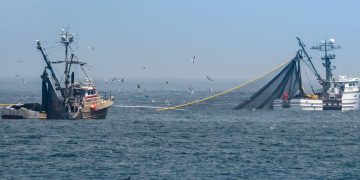

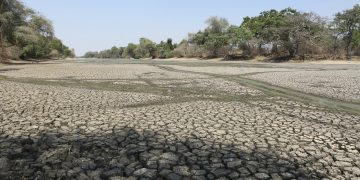

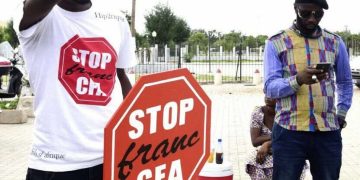

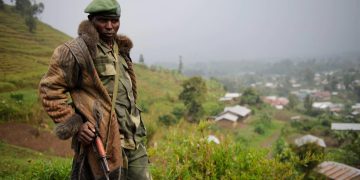




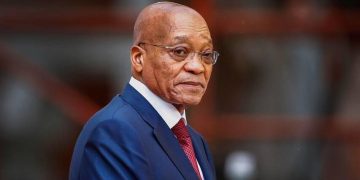

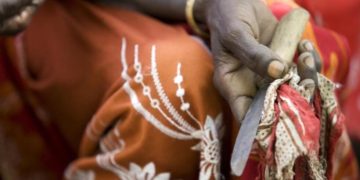

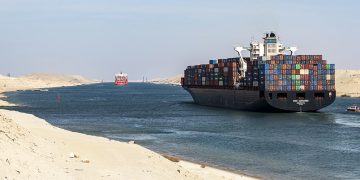
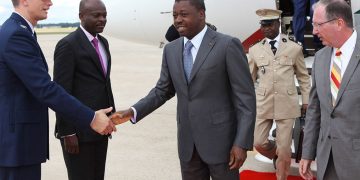



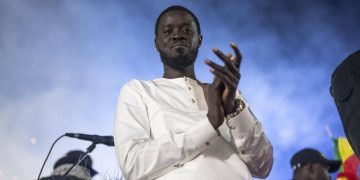
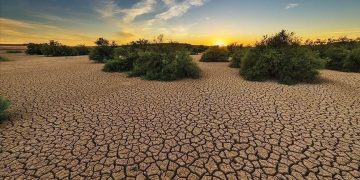


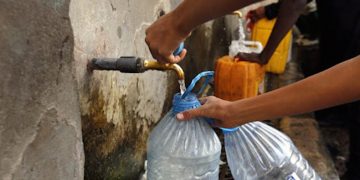
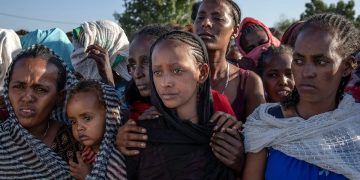

![[Editorial] 30 years later, is apartheid really over?](https://lejournaldelafrique.com/wp-content/uploads/2021/06/caricature-jda-apartheid-360x180.jpg)
![[Edito] Gabon and Commonwealth: the whims of Prince Ali](https://lejournaldelafrique.com/wp-content/uploads/2021/06/caricature-JDA-Bongo-360x180.jpg)
![[Editorial] Facebook and Twitter, more dictators than dictators?](https://lejournaldelafrique.com/wp-content/uploads/2021/06/Caricature-JDA-FB-TW-360x180.jpg)
![[Edito] Rwanda: for the French apologies, we will have to go back](https://lejournaldelafrique.com/wp-content/uploads/2021/05/Caricature-rwanda-JDA-360x180.jpg)
![[Edito] Guinea: Alpha Condé, the oppressed turned oppressor](https://lejournaldelafrique.com/wp-content/uploads/2021/05/Caricature-Alpha-Conde-360x180.jpg)
![[Edito] CFA Franc: a facelift cut to measure for France](https://lejournaldelafrique.com/wp-content/uploads/2021/05/Caricature-JDA-CFA-360x180.jpg)
![[Edito] Riyad Mahrez: One, two, three, viva l'Algérie!](https://lejournaldelafrique.com/wp-content/uploads/2021/05/caricature-Mahrez-360x180.jpg)
![[Edito] Niger: Mohamed Bazoum begins a delicate balancing act](https://lejournaldelafrique.com/wp-content/uploads/2021/04/image_6483441-1-360x180.jpg)
